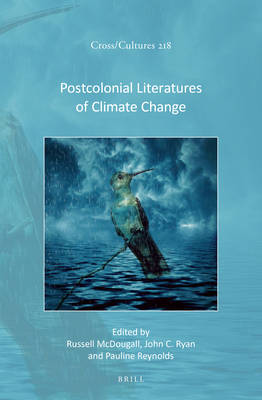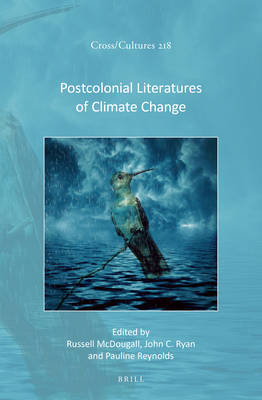
- Retrait gratuit dans votre magasin Club
- 7.000.000 titres dans notre catalogue
- Payer en toute sécurité
- Toujours un magasin près de chez vous
- Retrait gratuit dans votre magasin Club
- 7.000.0000 titres dans notre catalogue
- Payer en toute sécurité
- Toujours un magasin près de chez vous
Postcolonial Literatures of Climate Change
218,45 €
+ 436 points
Description
Postcolonial Literatures of Climate Change investigates the evolving nature of postcolonial literary criticism in response to global, regional, and local environmental transformations brought about by climate change. It builds upon, and extends, previous studies in postcolonial ecocriticism to demonstrate how the growing awareness of human-caused global warming has begun to permeate literary consciousness, praxis and analysis. The breadth of the volume's coverage - the diversity of its focal locations, cultures, genres and texts - serves as a salient reminder that, while climate change is global, its impacts vary, effecting peoples from place to place unequally, and often in accordance with their particular historical experience of colonialism and neo-colonialism, as well as their ongoing marginalisations.
"Demonstrating the urgency of invoking novel epistemological approaches combining the scientific and the imaginative, this book is a "must read" for those concerned about the present and potential impacts of climate change on formerly colonised areas of the world. The comprehensive and illuminating Introduction offers a crucial history and current state of postcolonial ecocriticism as it has been and is addressing climate crises."
- Helen Tiffin, University of Wollongong
"The broad focus on the polar regions, the Pacific and the Caribbean - with added essays on environmental justice/activism in India and Egypt - opens up rich terrain for examination under the rubric of postcolonial and ecocritical analysis, not only expanding recent studies in this field but also enabling new comparisons and conceptual linkages." - Helen Gilbert, Royal Holloway, University of London
"The subject is topical and vital and will become even more so as the problem of how to reconcile the demands of climate change with the effects on regions and individual nations already damaged by the economic effects of colonisation and the subsequent inequalities resulting from neo-colonialism continues to grow." - Gareth Griffiths, Em. Prof. University of Western Australia
"Demonstrating the urgency of invoking novel epistemological approaches combining the scientific and the imaginative, this book is a "must read" for those concerned about the present and potential impacts of climate change on formerly colonised areas of the world. The comprehensive and illuminating Introduction offers a crucial history and current state of postcolonial ecocriticism as it has been and is addressing climate crises."
- Helen Tiffin, University of Wollongong
"The broad focus on the polar regions, the Pacific and the Caribbean - with added essays on environmental justice/activism in India and Egypt - opens up rich terrain for examination under the rubric of postcolonial and ecocritical analysis, not only expanding recent studies in this field but also enabling new comparisons and conceptual linkages." - Helen Gilbert, Royal Holloway, University of London
"The subject is topical and vital and will become even more so as the problem of how to reconcile the demands of climate change with the effects on regions and individual nations already damaged by the economic effects of colonisation and the subsequent inequalities resulting from neo-colonialism continues to grow." - Gareth Griffiths, Em. Prof. University of Western Australia
Spécifications
Parties prenantes
- Editeur:
Contenu
- Nombre de pages :
- 428
- Langue:
- Anglais
- Collection :
- Tome:
- n° 218
Caractéristiques
- EAN:
- 9789004514171
- Date de parution :
- 07-07-22
- Format:
- Livre relié
- Format numérique:
- Genaaid
- Dimensions :
- 155 mm x 235 mm
- Poids :
- 837 g

Les avis
Nous publions uniquement les avis qui respectent les conditions requises. Consultez nos conditions pour les avis.





